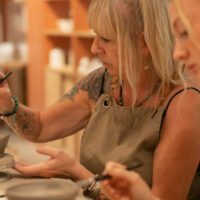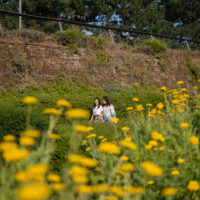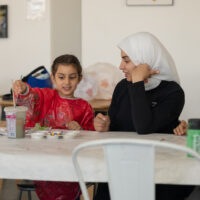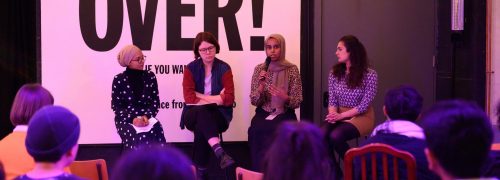
Events
Newham Word Festival: #BecauseWe’veRead book club provokes change and conversation
By turns enlightening, funny, and thought-provoking, the #BecauseWe’veRead: Conversations and Collaboration evening at Newham Word Festival exemplified in many ways the unique strengths of the borough’s literary fortnight. Taking place in the Silver Building cafe, the panel discussion channelled a global phenomenon to create a night that felt truly local.
The phenomenon in question is #BecauseWe’veRead. This radical book club founded by fashion blogger Hoda Katebi connects through meet ups across the world. Chapters have been springing up ever since Katebi, an Iranian-American, was questioned on live TV last year about her stance on nuclear weapons. It’s an extraordinary segment of television that Katebi handles with aplomb. At one point, the host even accuses her of not sounding like an American. “That’s because I’ve read,” replies Katebi. The clip went viral and the rest is history.
Maryam Abdullah and Alliyah Riaz head up the London branch of the book club. At #BecauseWe’veRead: Conversations and Collaboration, the pair curated a speaker list comprising zine makers, book club founders, and leaders of poetry collectives.
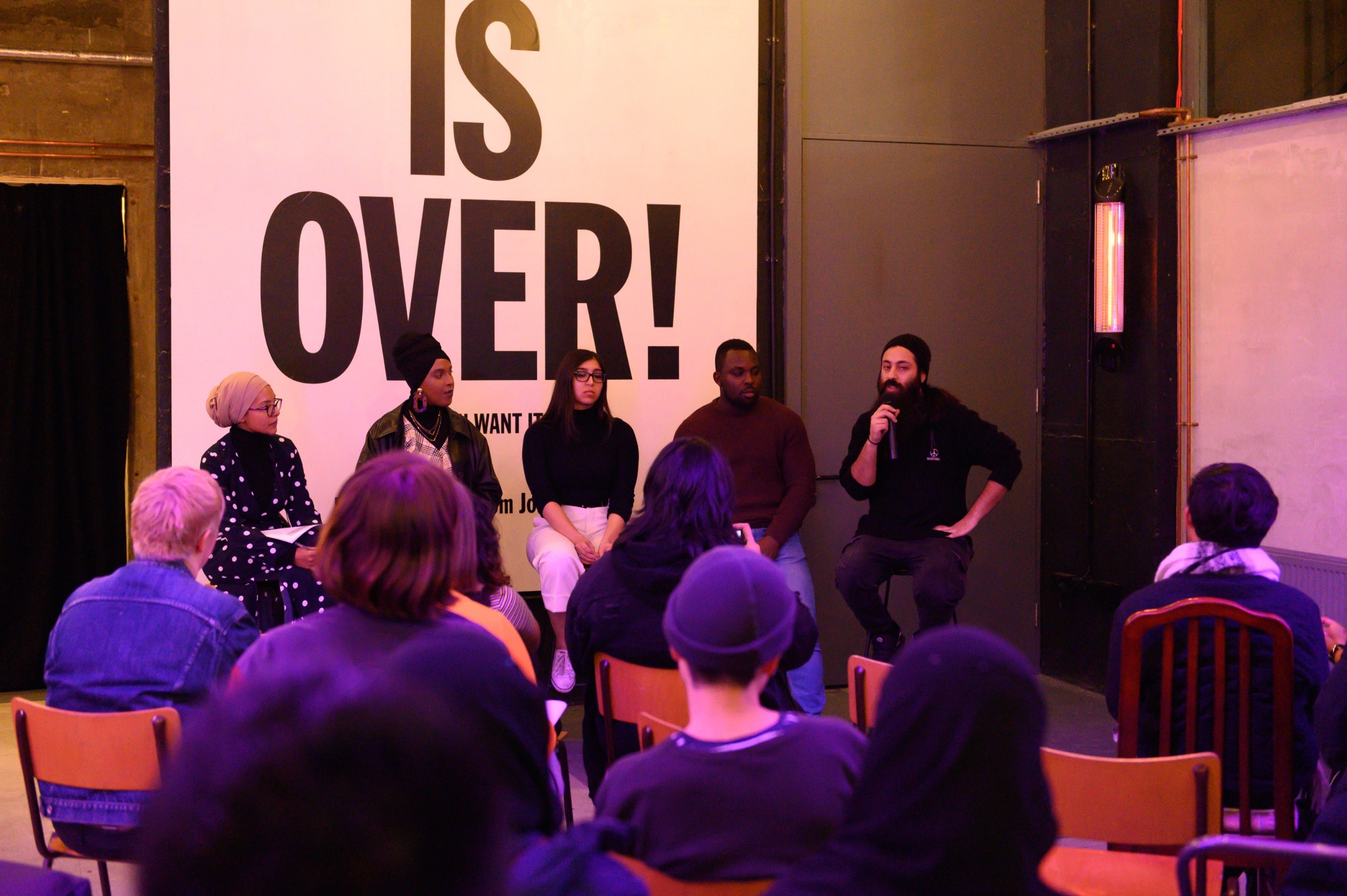
Evening of discussion
Panel members respond to questions from chair Maryam Abdullah.
We’re giving people a space where they can be utterly passionate.
Samuel Akinwumi, The Black Verse
Over snacks and tea at the Silver Building, two panels explored how communities coming together can drive change. Amani Saeed, for instance, founded The Yoniverse while living in Exeter, a poetry collective “for South Asian Women, by South Asian women”. In a city where just 4% of the population identify as Asian, she said, “I wanted to dispel the mentality that there can only be one brown girl in the village.”
Collectives have the power to elevate the voices of people who often go unheard. Samuel Akinwumi from The Black Verse described his platform’s role in providing a place for black poets, “Everything we do that’s passionate is always policed… We’re giving people a space where they can be utterly passionate.”
In a wider sense, the goal is to champion real change and challenge superficial tokenism. Salma Ibrahim from Literary Natives explained that while diversity schemes may have multiplied in workplaces, they’re not enough on their own, “You have people in the building, but you’re not really accommodating them.”
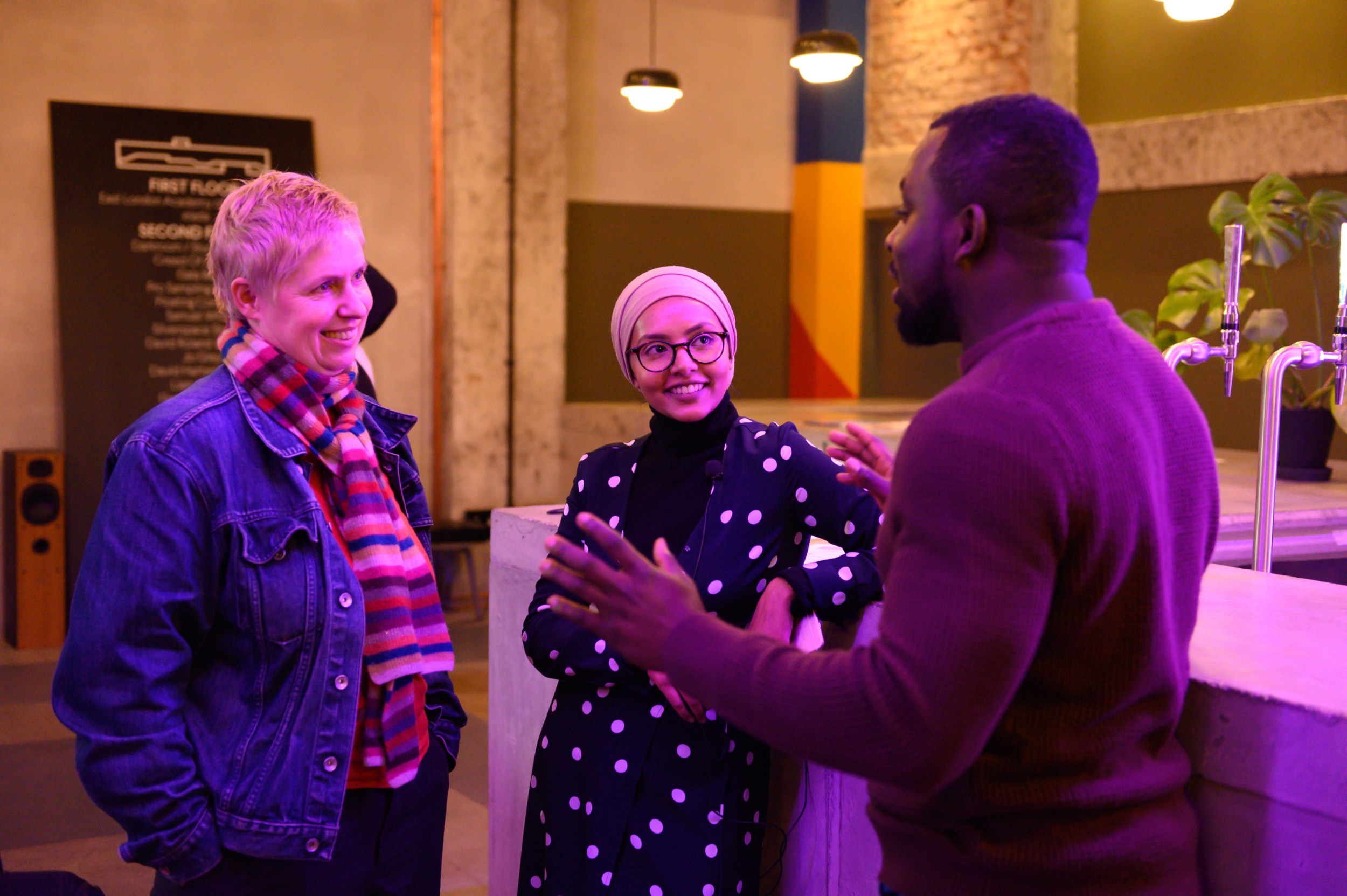
Interval
Maryam Abdullah (centre), with Newham Word Festival's Karla Barnacle-Best and Samuel Akinwumi from The Black Verse.
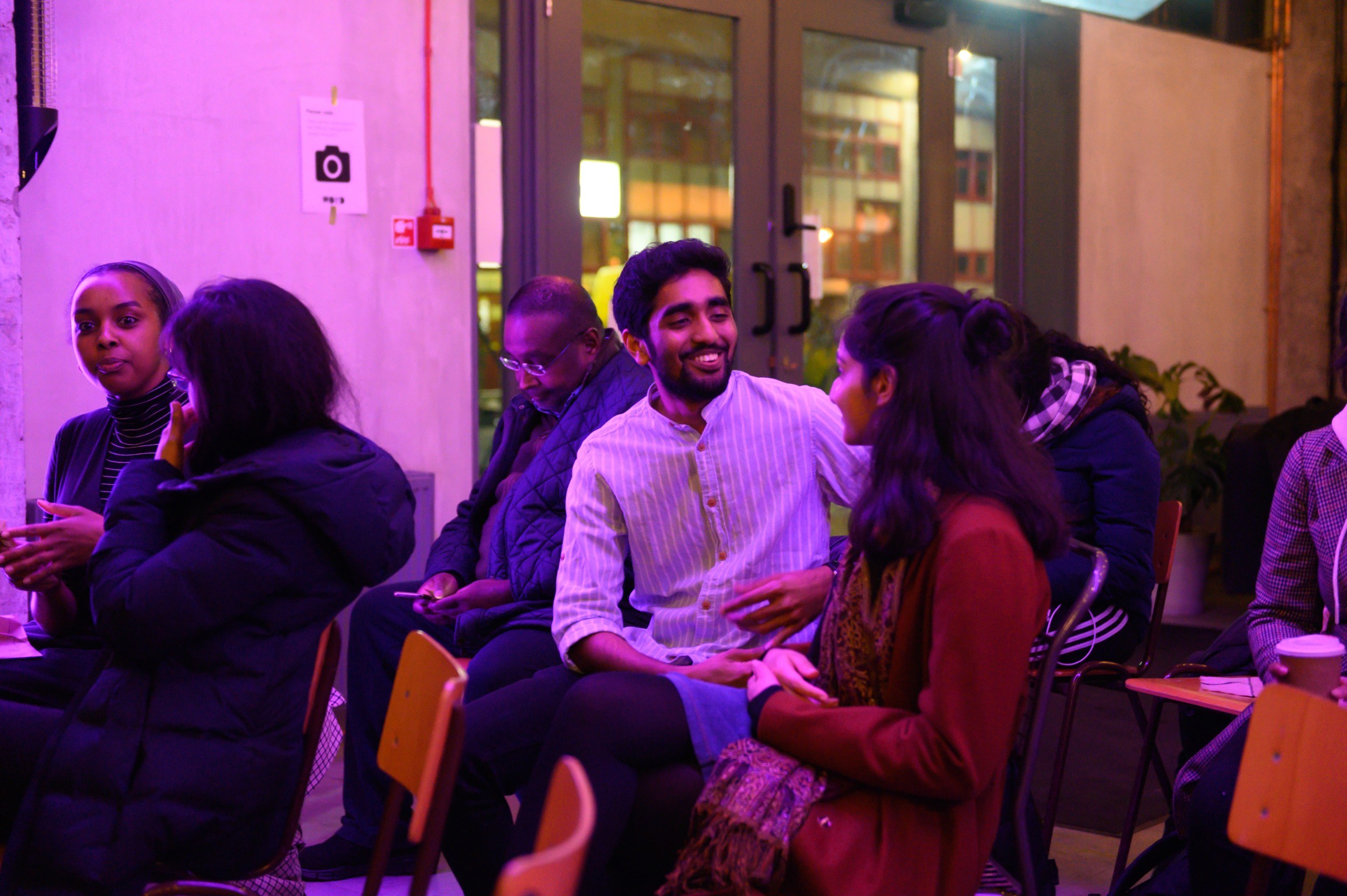
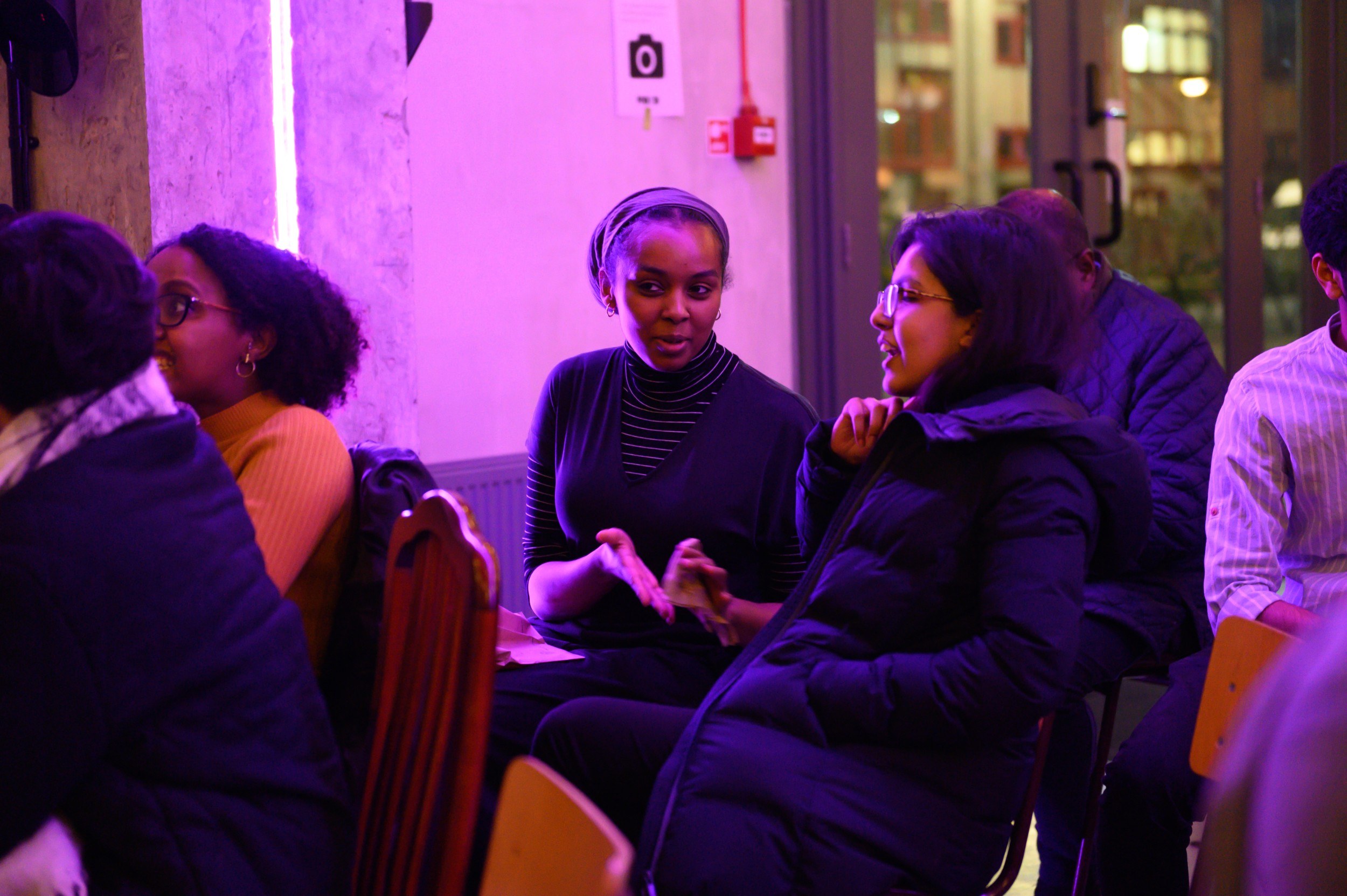
I wanted to dispel the mentality that there can only be one brown girl in the village.
Amani Saeed, The Yoniverse
A theme running through the night was how deeply personal this work can be, both in terms of responsibility and vulnerability. As Saeed told the room, if The Yoniverse disappeared, there would be no equivalent left for South Asian women, and she feels a sense of duty to the community she’s serving. Creating spaces also allows the participants to take risks they wouldn’t be able to otherwise. As Akinwumi puts it, “It’s made me appreciative of how much work goes into being that vulnerable.”
Check out the collectives below to listen to some of the voices that are shaping the future, or see the rest of the Newham Word Festival schedule.
Panel one, photo at top (l-r):
Kay Stephens, daikon* zine
Salma Ibrahim, Literary Natives
Sheetal Mistry, South Asian Sisters Speak
Panel two, second photo down:
Neimo Askar, Poetry and Shaah
Amani Saeed, The Yoniverse
Samuel Akinwumi, The Black Verse
Shazad Khalid, Makrooh
